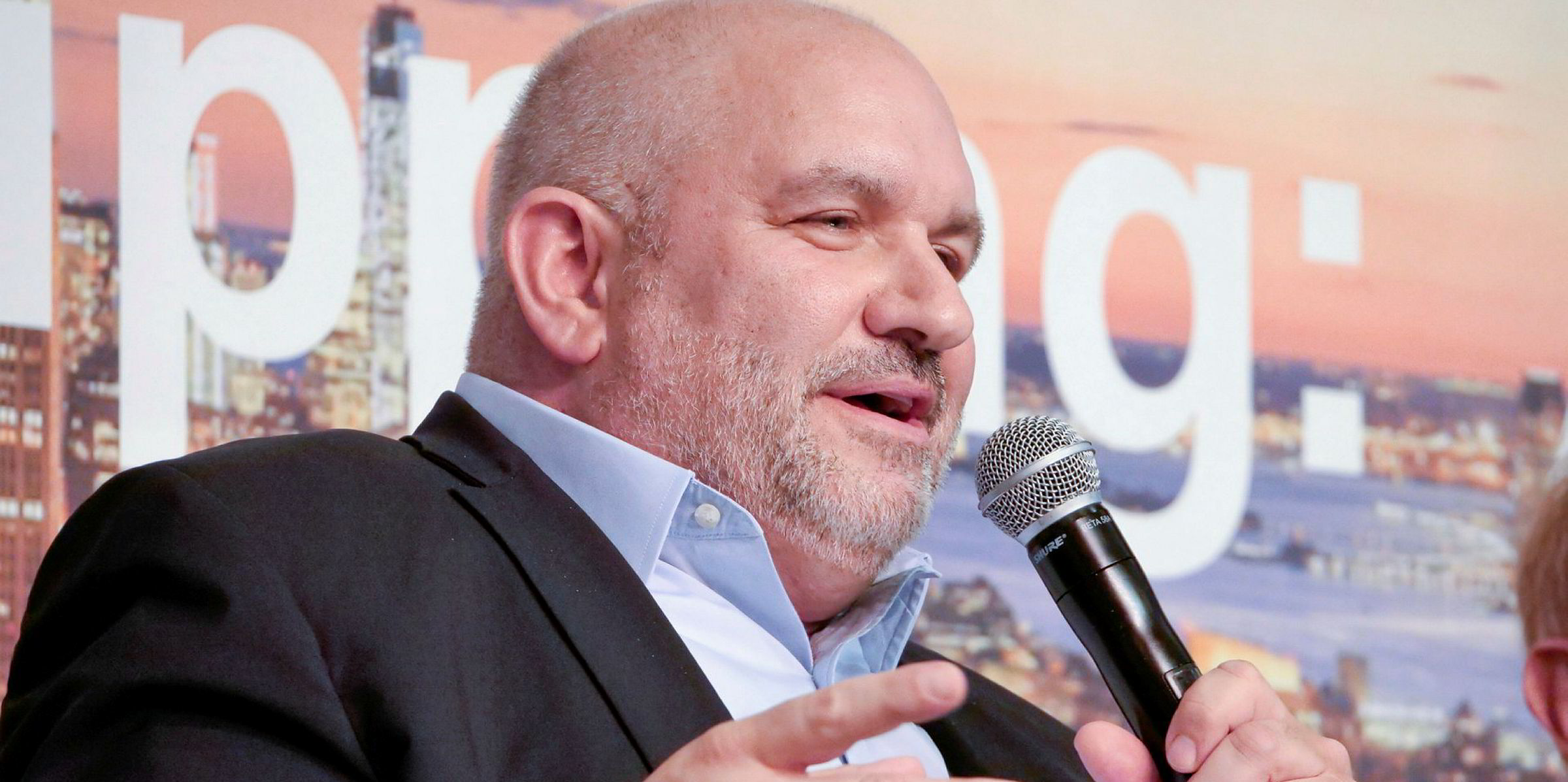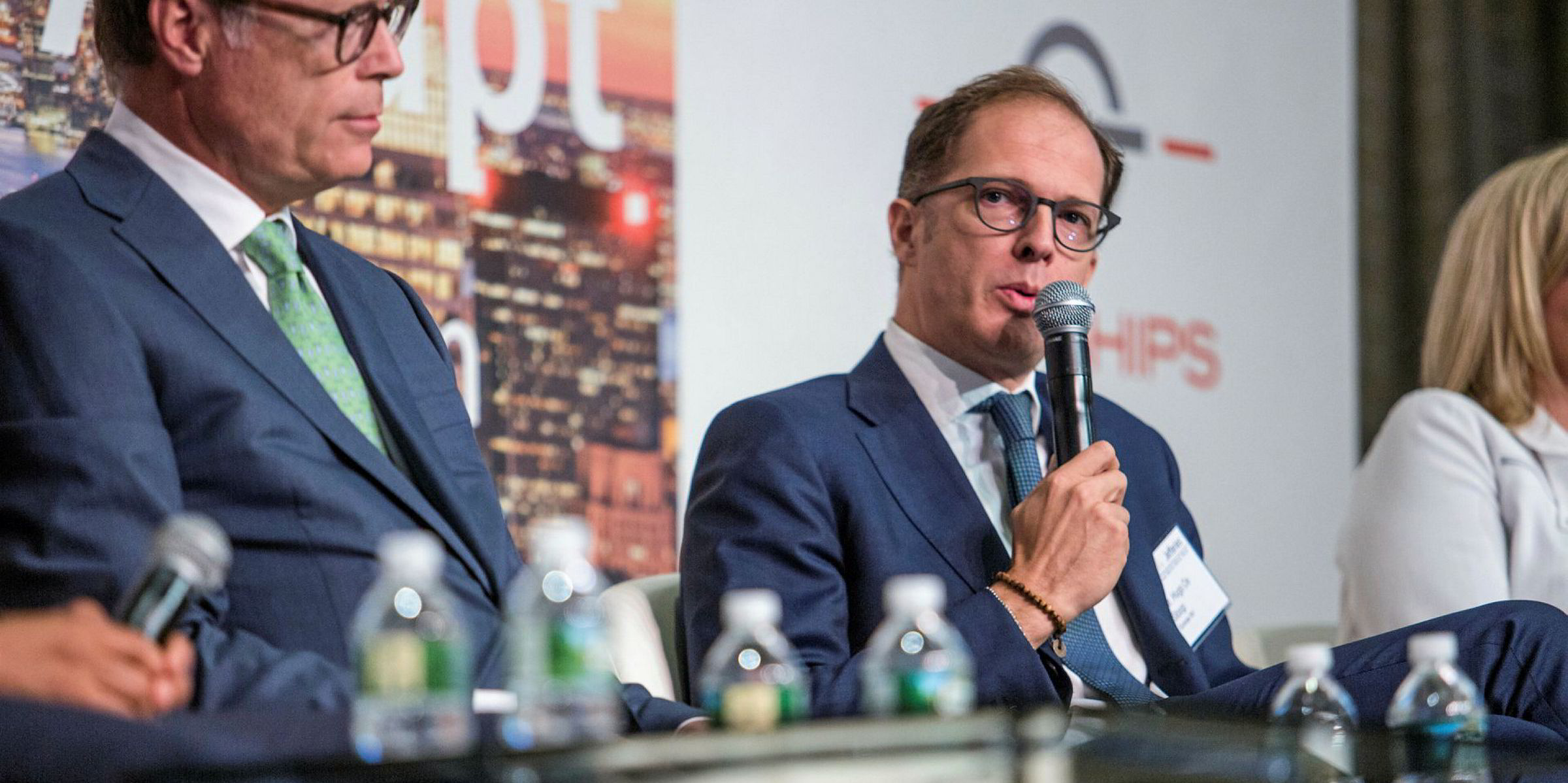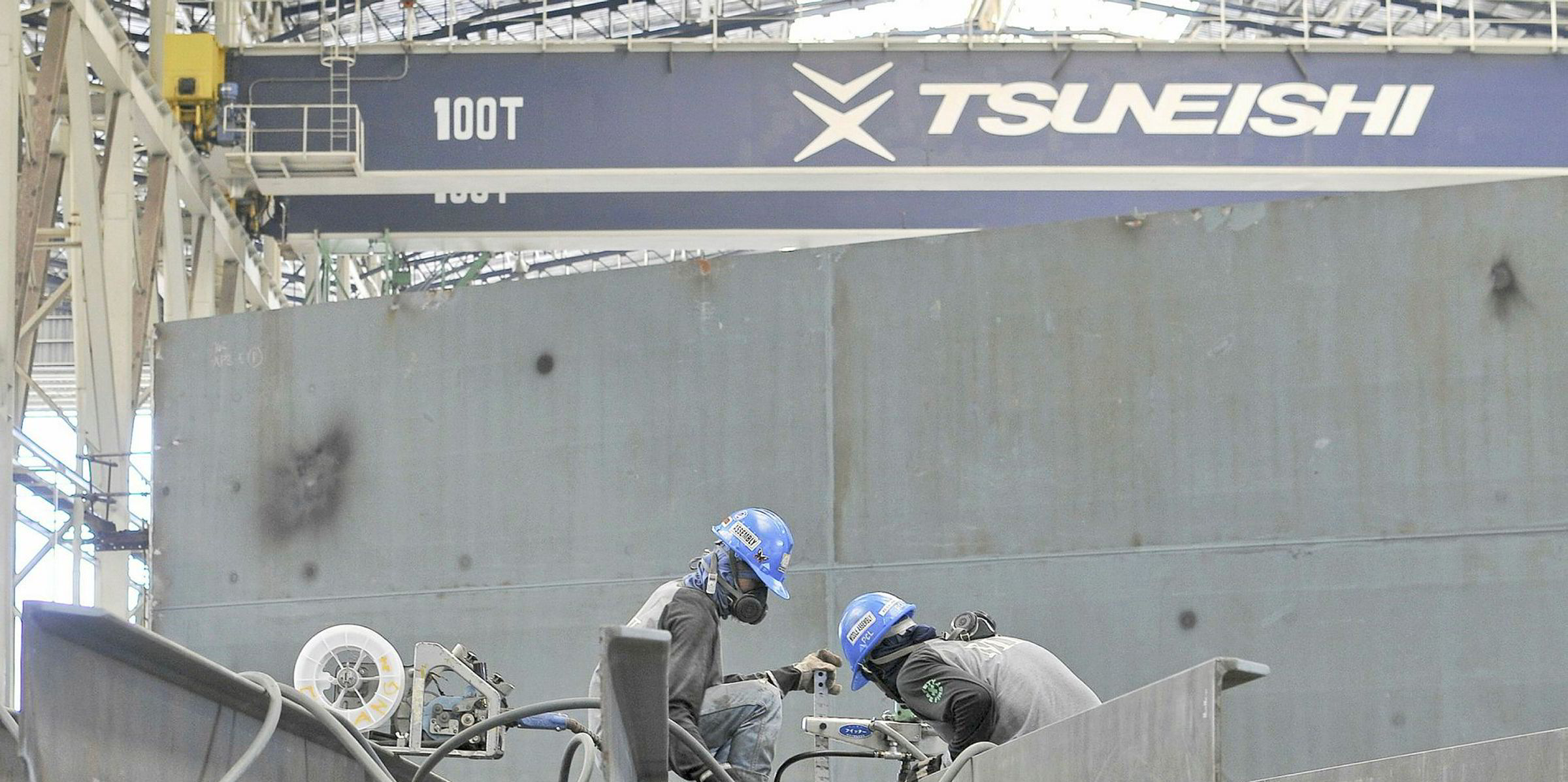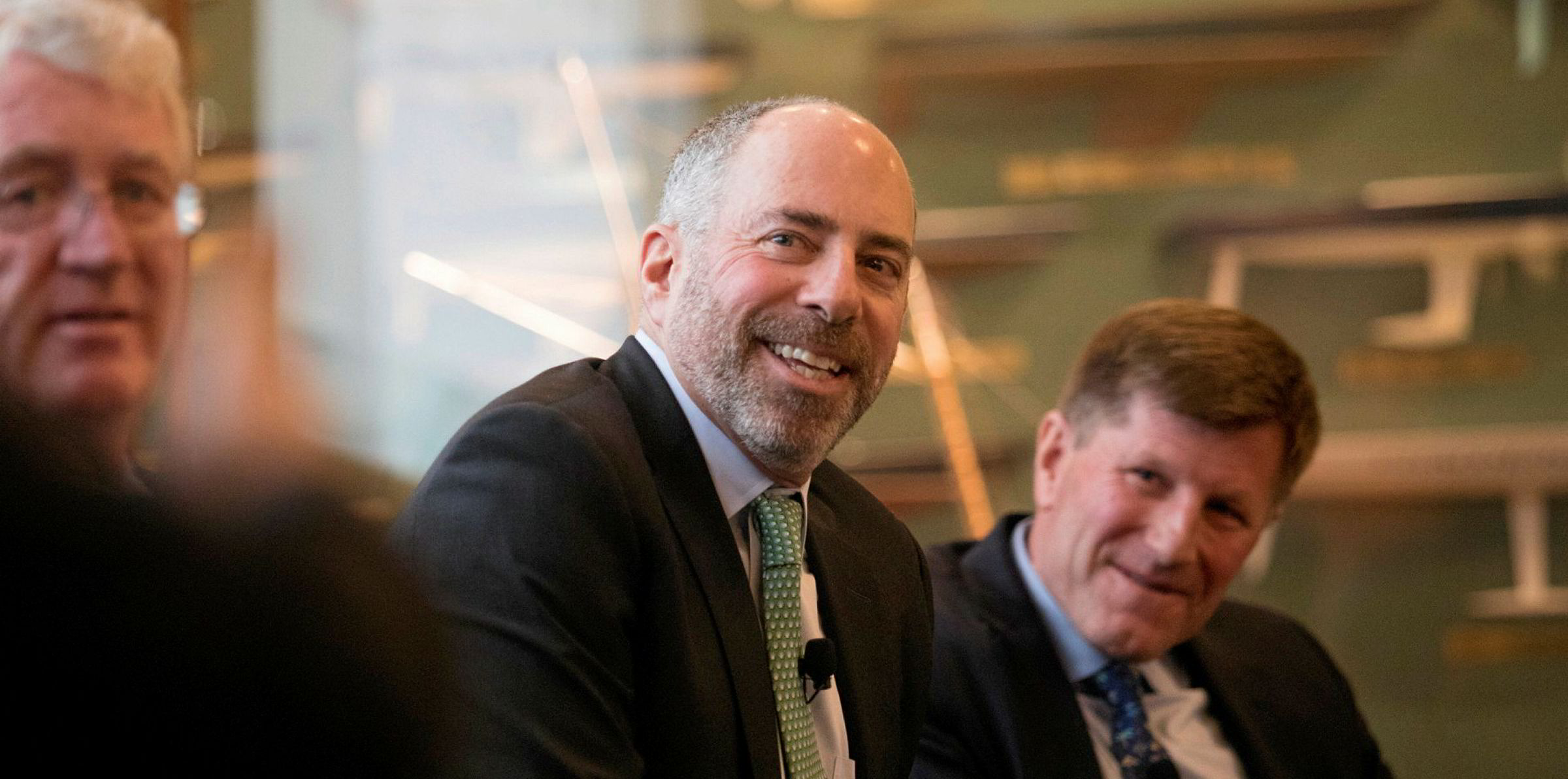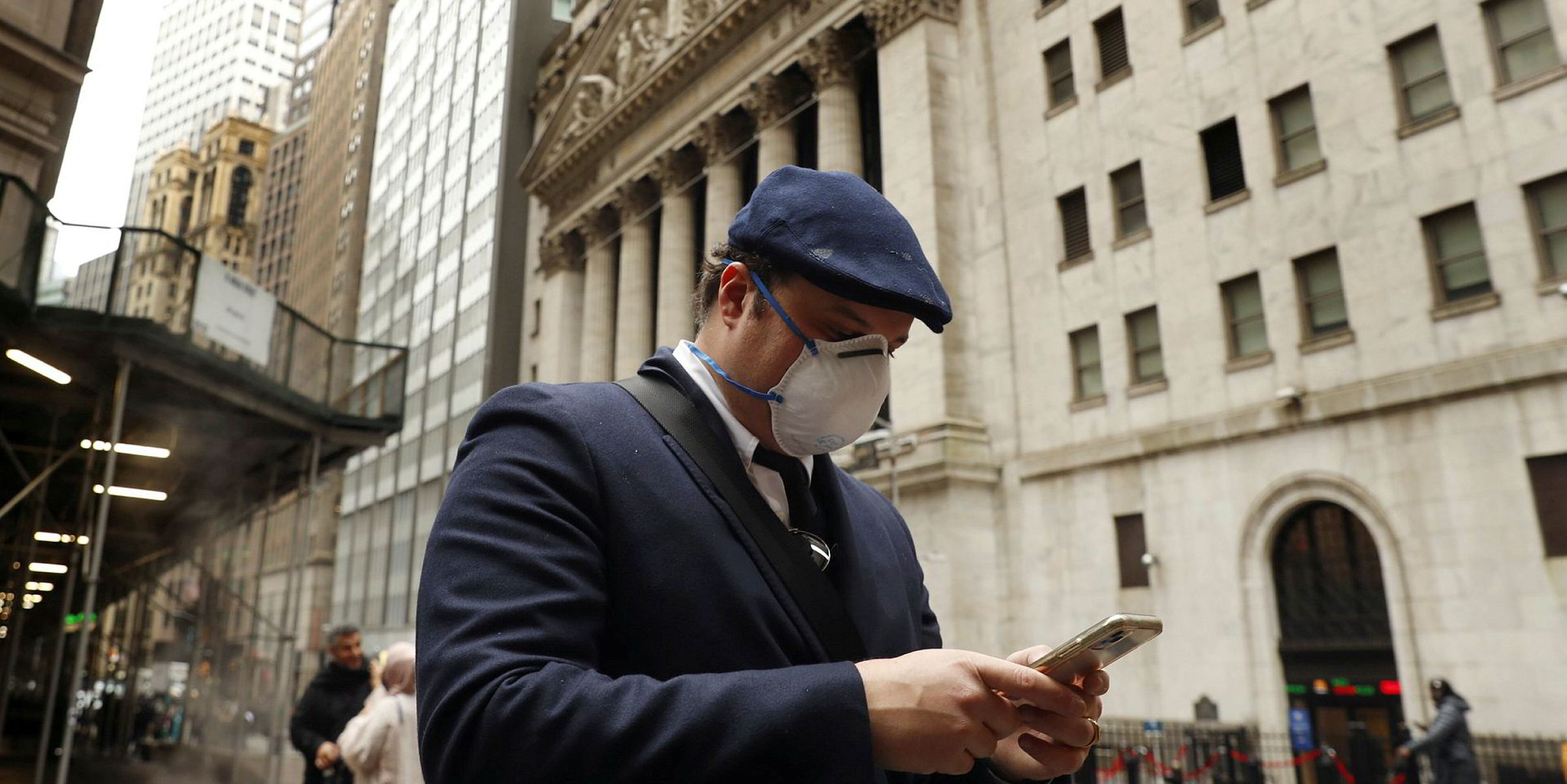Mergers and acquisitions are back on the shipping agenda after a tumultuous period in which losses for many companies mounted and potential consolidators were starved of hope. The M&A buzz has been triggered by the lessening of the pandemic-created downturn, which has left some shipowners looking for a more profitable way ahead — others, a way out.
With high debts and limited cash flow, some owners may again consider leaving the sector or at least ceding control to a better-financed rival.
Among those murmuring the mantra of M&A has been banker-turned-shipowner Hamish Norton, president of Star Bulk Carriers, even though his own company lost $44m in the second quarter.
Now is the time to strike
“Last quarter, we told people ... it was probably not a good time for consolidation because everybody was very uncertain as to the future and it was difficult to basically reach an agreement with anybody on a deal. I think that has now changed,” he told equity analysts on a financial results call last week.
“We would intend to make acquisitions within the dry bulk sector,” he added, saying that any such transaction would use shares, not cash.
Any words from Norton and Star Bulk are freighted with importance because this pair has a strong record of deal-making.
In 2018, Star Bulk bought the Augustea Atlantica fleet, then spent $328m buying up Songa Bulk, followed by the purchase of the seven-strong bulker fleet of Germany’s ER Capital Holding. Last year, it snapped up 11 ships from Delphin Shipping.
Norton thinks now is the time for deals because the post-Covid future is that much clearer in people’s minds.
In the worst of the pandemic, when freight rates collapsed, owners on all sides were just trying to keep their businesses afloat.
Now the panic is over, the Baltic Dry Index has recovered to a respectable 1,500 points and clearer thinking is emerging.
On the other side of the industry — tankers — there is a different picture for freight rates but similar talk about M&A.
There are no unicorns, no billion-dollar companies in bulkers…They need to become powerhouses but ]individual shipowner] egos get in the way
David Marcus, Evermore Global Advisors
Big tanker operators made a fortune out of the oil price collapse in the spring, with customers fighting to hire VLCCs for crude storage.
Now that situation is unwinding and freight rates have slumped, leaving shipowners looking at a miserable end to the year.
This scenario is seen by Star Bulk’s opposite number in the tanker business, Euronav, as providing fertile ground for consolidation.
Hugo De Stoop, the Euronav chief executive, said at his results conference last week on the back of second-quarter profits hitting $340m, that he saw opportunities ahead for takeovers.
“Small players are facing severe challenges, which to our mind can only be addressed with size. When the market is softening, the [ship] value will come off. People will realise that it may be a very good time to exit the market.”
Euronav, which used downturns to buy 15 Maersk Tankers VLCCs for almost $1bn in 2014 and then bought Gener8 for more than $500m two years ago, made it clear it was prepared to use cash or debt as well as shares.
‘Get cracking’
Certainly some industry leaders such as Robert Bugbee, president of Scorpio Tankers and Scorpio Bulkers, see consolidation as unlikely, especially using equity when so many potential acquirers hold shares trading at a huge discount to the net asset value of their fleet.
An acquirer by nature, he said he was more likely to be a seller not buyer.
But there is always a posse of investment bankers cheering on any consolidation, not least because it creates fat fees for the arrangers.
Still, there are plenty of good arguments for bringing more critical mass of large companies to such a fragmented industry largely made up of family firms.
Bigger entities can attract bigger institutional investors into the sector and create more liquidity, said David Marcus of fund manager Evermore Global Advisors.
“We would love to see more consolidation,” he said in February. “They need to get cracking ... [dry bulk operators are] just too small for big investors to look at. There are no unicorns, no billion-dollar companies in bulkers ... They need to become powerhouses, but [individual shipowner] egos get in the way.”
One of the issues that may shunt egos or other obstacles out of the way is the increasing cost of regulation, especially connected with decarbonisation.
Covid-19 knocked carbon off the top of the shipping agenda, but the International Maritime Organization is desperate to press ahead with meetings on the subject. Small companies could struggle with the added complexity and higher costs.
Future themes for the industry may yet be centred around the three “C”s: Covid, carbon and consolidation.
